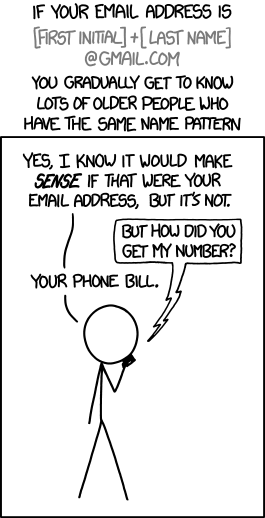Whois privacy protection
- laura
- June 25, 2015
- Best practices
I’ve talked about using privacy protection on domains in the past (here, here, here, here, and here). Short version (if you don’t want to check all the old links) is that privacy protection for commercial domains is bad, that’s what spammers do and legitimate email marketers should not hide domains behind privacy protection services. I still believe all of these things.
What I’ve never really addressed is that I think privacy protection services are appropriate in some cases and are a reasonable protective measure for individuals. Over on Spamresource, Al wrote up a great post today about whois privacy protection.
Sometimes people do need anonymity and privacy online. Trusting a registrar’s privacy protection service is probably not your best bet for that. Like Al, we’ve stood in as a “privacy service” for friends and colleagues. It was our name on the domain registrations, and we could contact the appropriate people as needed. They trusted us to forward only the important stuff and we trusted them not to do bad things. This trust doesn’t scale.
Privacy protection services are used by a lot of bad actors to hide their involvement. Companies and commercial entities are tarring their own reputations using privacy protection services.
No real pull quote here, all of Al’s points are too good. So go read the whole thing.
